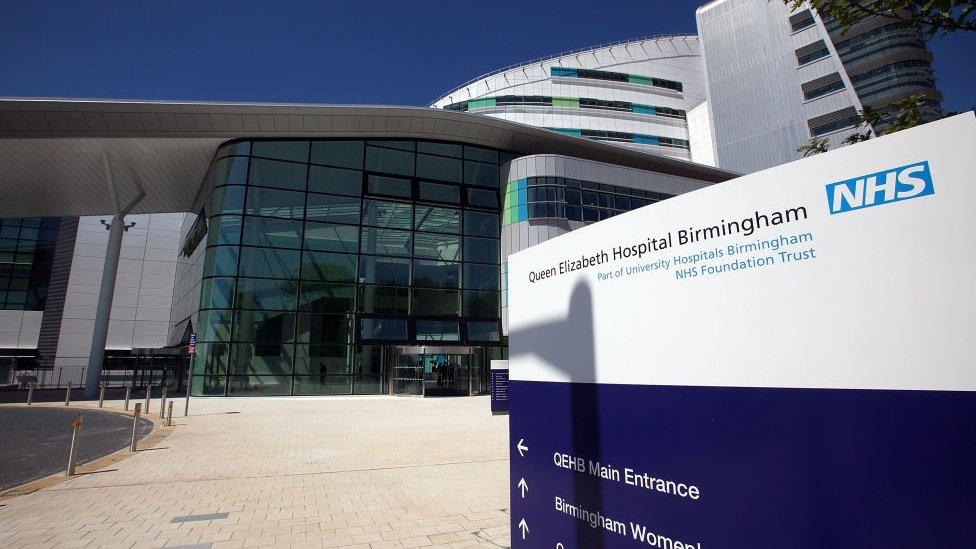Covid-19 outbreak on Birmingham hospital blood cancer ward
- Published
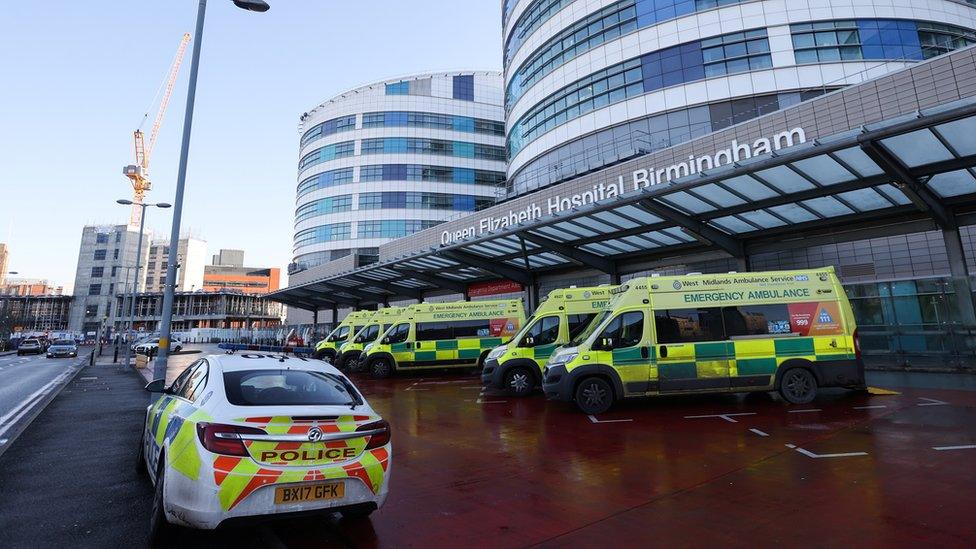
University Hospitals Birmingham has more patients with Covid-19 than any other trust in England, latest figures show
An outbreak of Covid-19 has been reported on a ward treating blood cancer patients in Birmingham.
Seven out of 15 stem cell transplant patients at the Queen Elizabeth (QE) Hospital have tested positive.
Transplants had to be halted in October after a similar coronavirus outbreak.
The trust said Covid cases were in spite of best efforts at prevention. In December, watchdog the CQC inspected the hospital over concerns including infection control and staffing levels.
The specialist haematology unit, known as ward 625, is meant to be a Covid-free zone, meaning patients are only allowed into it once they have tested negative for the virus.
That is because of the increased risks for blood cancer patients if they catch coronavirus, with one study suggesting they are 57% more likely to suffer severe disease compared with other cancer patients, external.
It is understood a number of the Covid cases among the seven patients are linked to the ward while others are thought to have been community infections.
University Hospitals Birmingham (UHB), which runs the QE Hospital, confirmed the first patient to contract Covid-19 in the latest outbreak on the ward - a man who has myeloma - caught the virus in hospital.
Other patients, including one man in his 40s who shared the same bay and who had had stem cell transplants, have gone on to get the virus.
An infection control meeting was held in the hospital on Thursday.
In a statement, UHB said despite the best efforts of staff to maximise infection control measures, a small cluster of Covid infections was being linked to a four-bed bay.
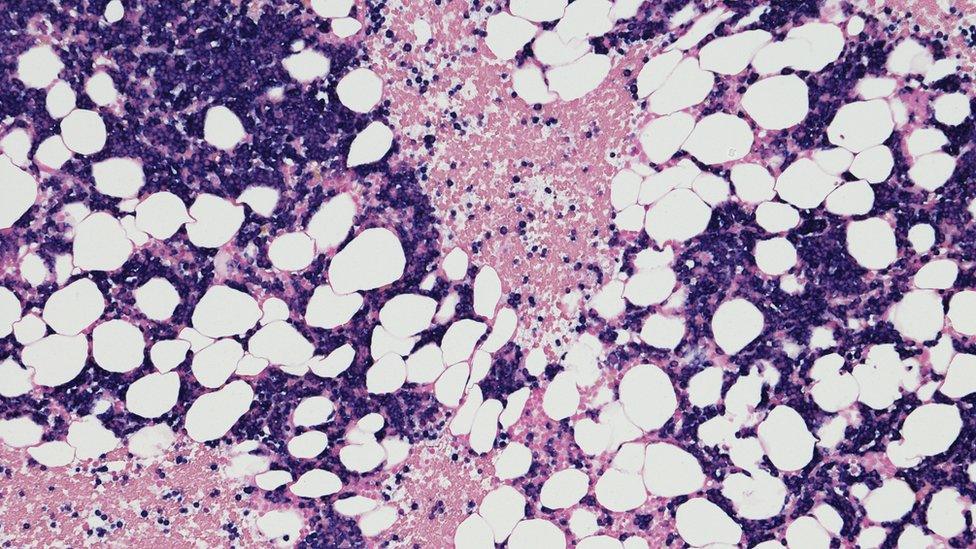
A study published in Lancet Oncology found blood cancer patients were 57% more likely to develop severe disease if they contracted Covid-19, compared with other cancer patients
Following the latest cases, sources told the BBC they were upset transplant patients were being treated in open wards.
In a recent email seen by the BBC, consultant Prem Mahendra wrote three of those to contract Covid-19 in the latest outbreak were moved out of side rooms into open bays.
She said those who had stem cell transplants and contracted Covid were 30% more likely to die than other coronavirus patients.
The email also said there had to be compelling reasons to move these patients into open bays.
"What we are now doing is currently unacceptable," Dr Mahendra wrote.
Staffing pressures
UHB said it was only bringing in the most seriously ill patients and it was not possible to treat all in side rooms because of staffing and the numbers of rooms available.
It added there were also high-risk patients with other infections who must be isolated in them.
Among other things, the Care Quality Commission report published on Wednesday, external found there were not always enough nursing staff at the QE Hospital with the right skills, in part due to pressures caused by the pandemic.
Inspectors said on every ward they visited "staff consistently told us that they were short staffed".
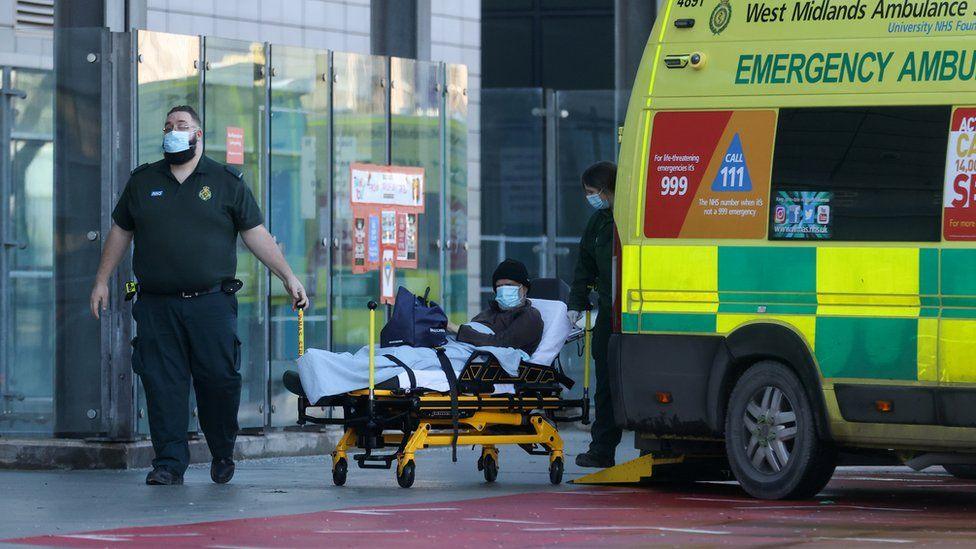
University Hospitals Birmingham said it was vaccinating all clinically extremely vulnerable adults
The West Midlands trust - the biggest of its kind in England - has more patients with Covid-19 than any other, latest figures show.
Healthwatch Birmingham, which represents patients, said there was "real pressure" on hospitals in the city due to staffing.
It said it was very concerned by what the CQC investigation found and it had also had feedback on incidents "consistent with some of the concerns raised by the CQC".
The CQC also highlighted the haematology unit had previously been a urology ward and some urology nurses still working there "needed to develop new knowledge and skills" to treat haematology and oncology patients.
Inspectors said some staff "did not feel confident in working in this environment". However, they reported hospital management had said training was expected to be completed by the end of January 2021.
The BBC has seen documents that show seven specialist blood cancer nurses have left and four more have been redeployed because of discontent.
It relates to the closure of ward 19 haematology at Birmingham Heartlands Hospital and the relocation of the service to the QE Hospital.
In a statement, UHB said: "Patients should be reassured that every effort is being made to keep them safe, including heightened screening of haematology patients and staff.
"We are also working hard to provide vaccinations to all clinically extremely vulnerable adults in line with national guidance."

OXFORD JAB: What is the Oxford-AstraZeneca vaccine?
TEST AND TRACE: How does it work?
VACCINE: When will I get the jab?
COVID IMMUNITY: Can you catch it twice?


Follow BBC West Midlands on Facebook, external, Twitter, external and Instagram, external. Send your story ideas to: newsonline.westmidlands@bbc.co.uk , external
Related topics
- Published3 February 2021
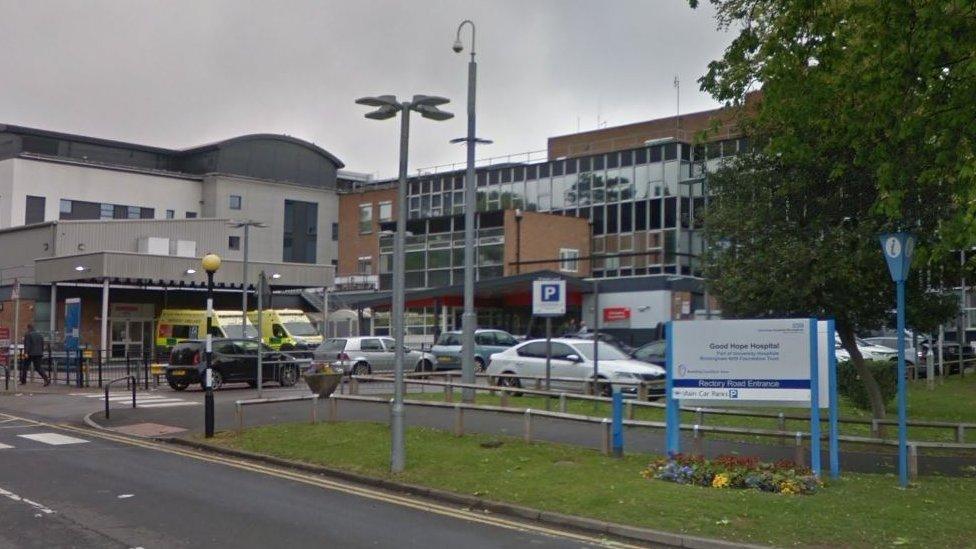
- Published22 January 2021

- Published12 January 2021
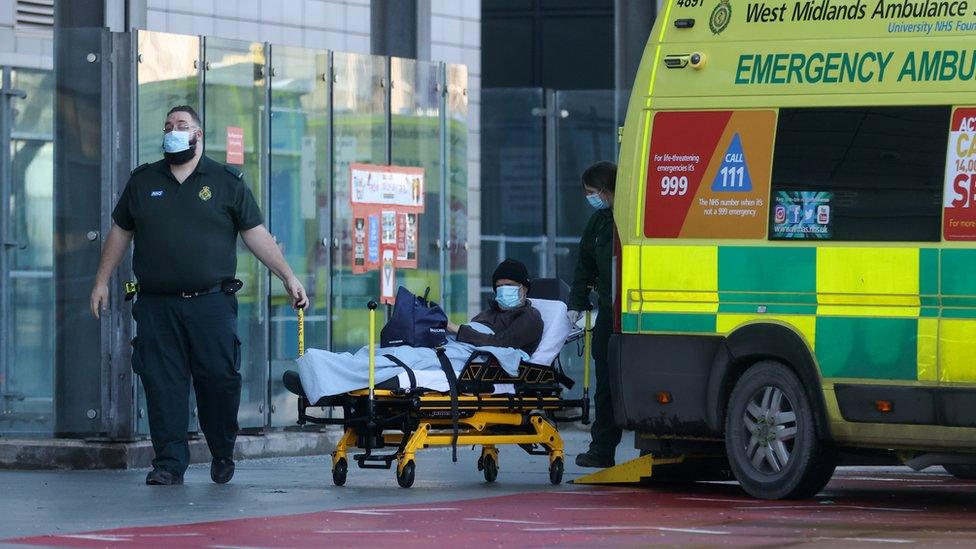
- Published14 October 2020
